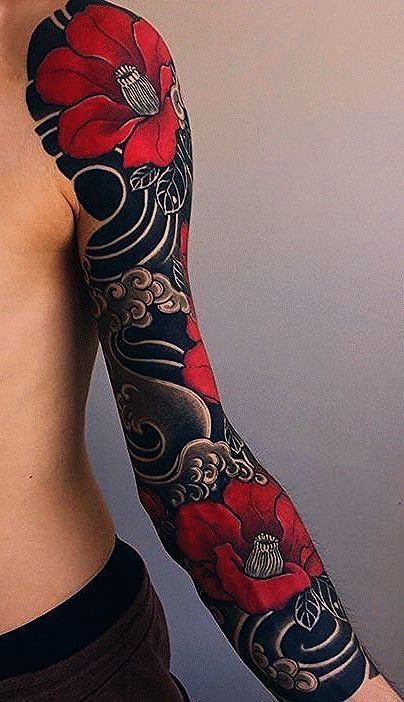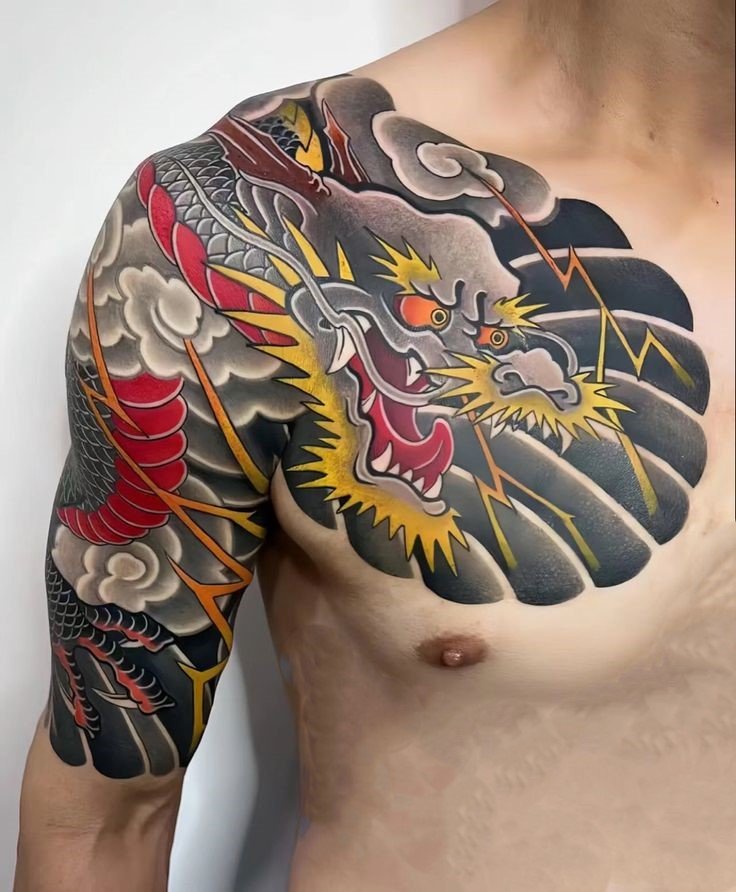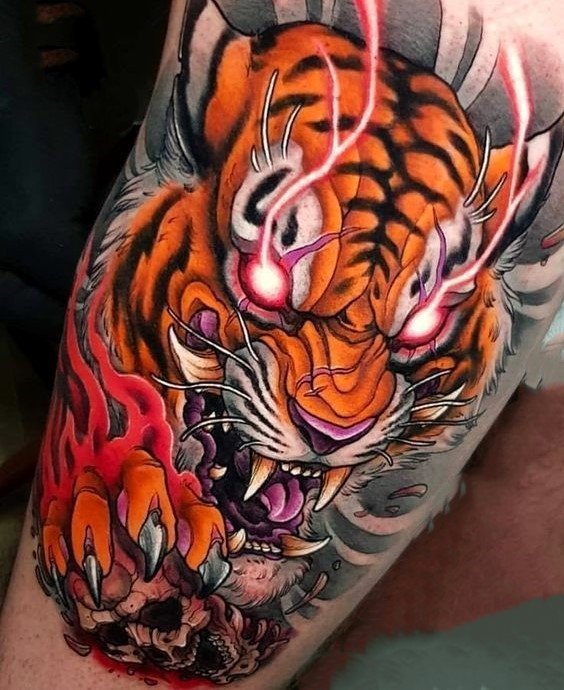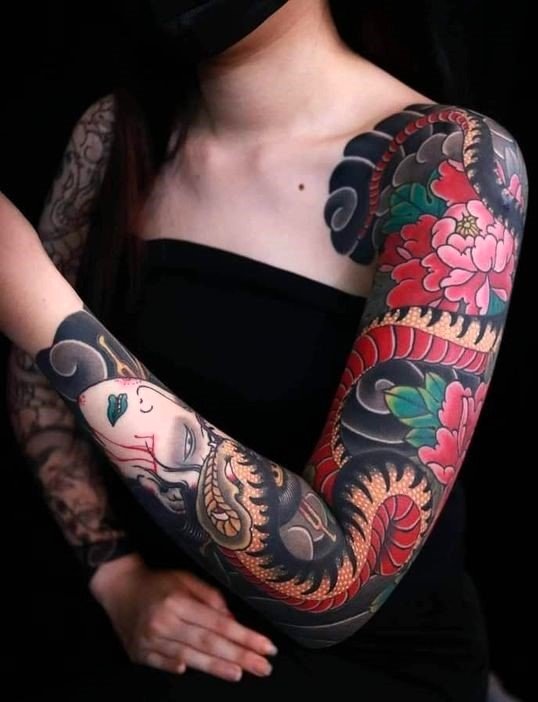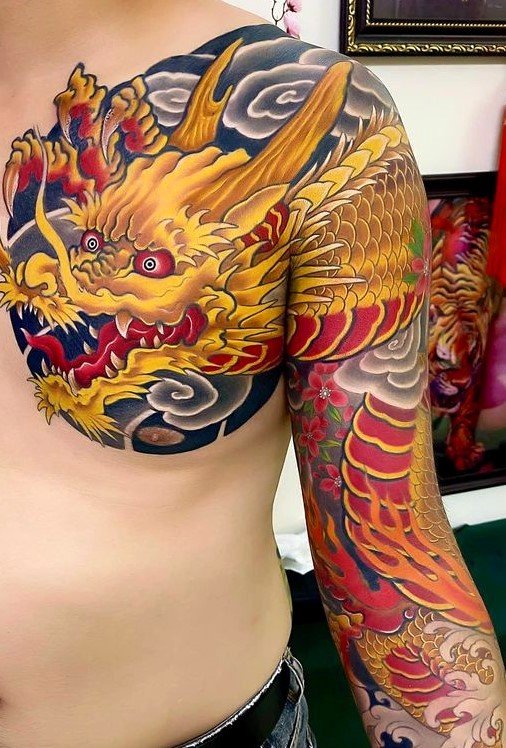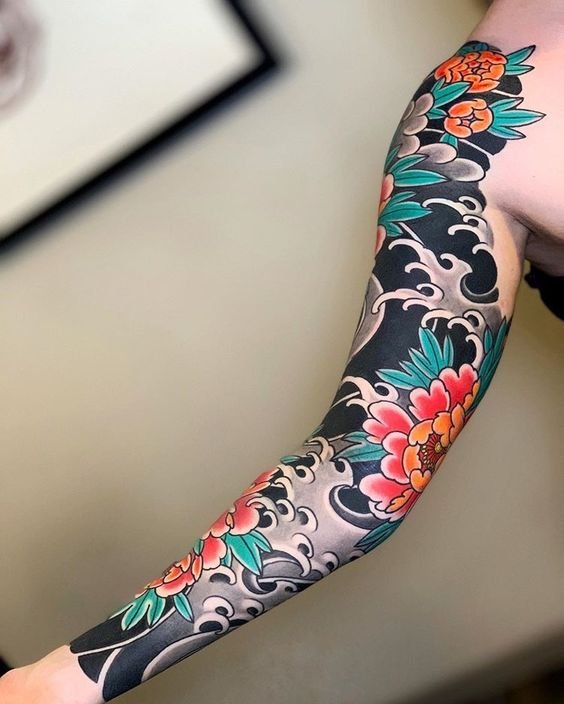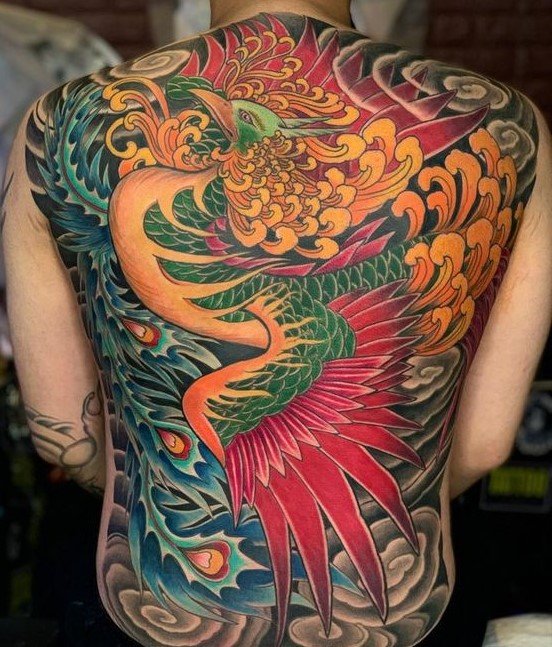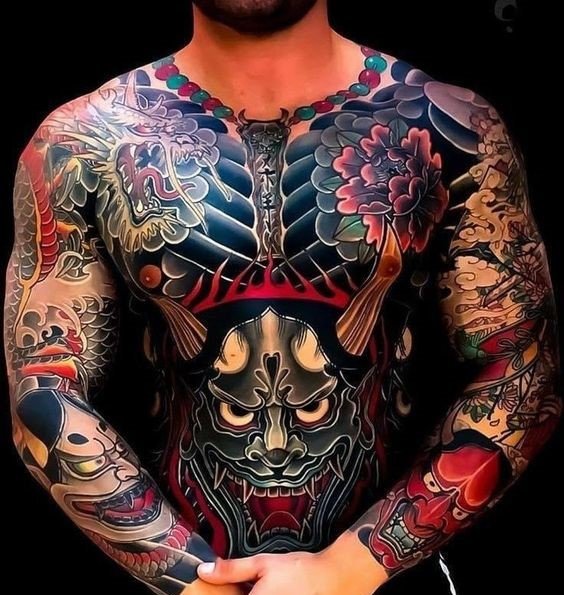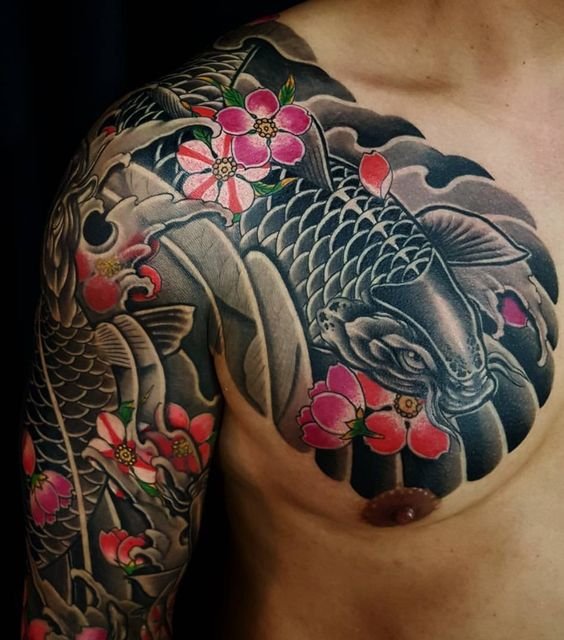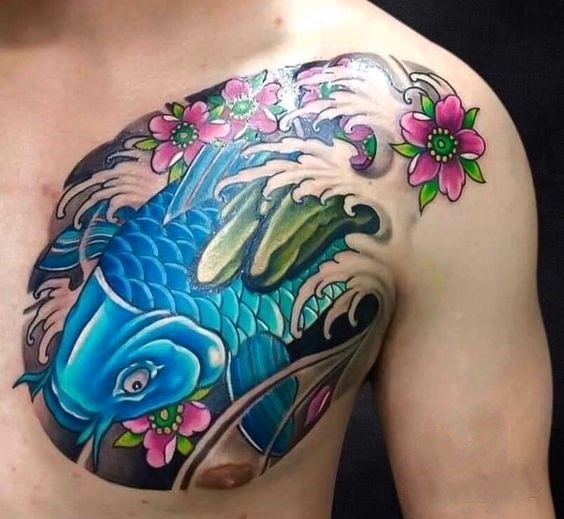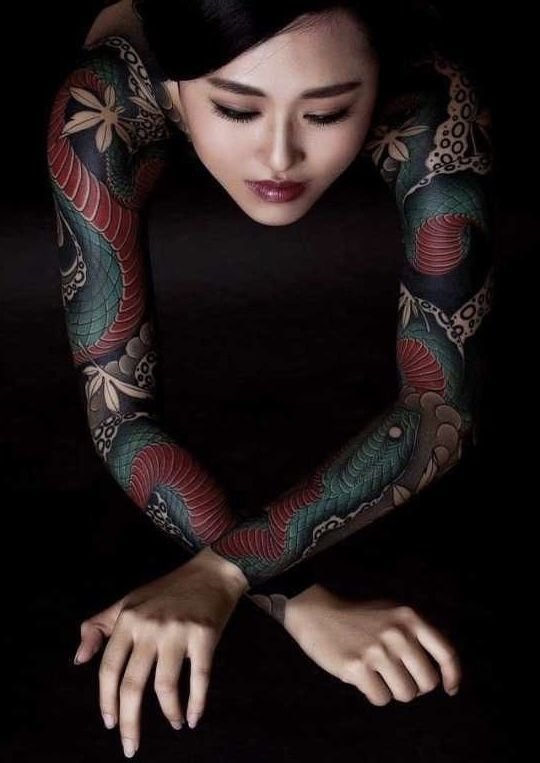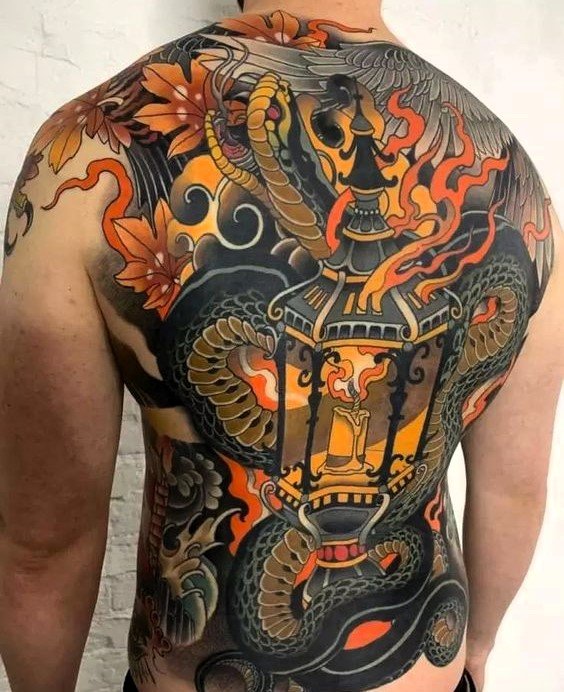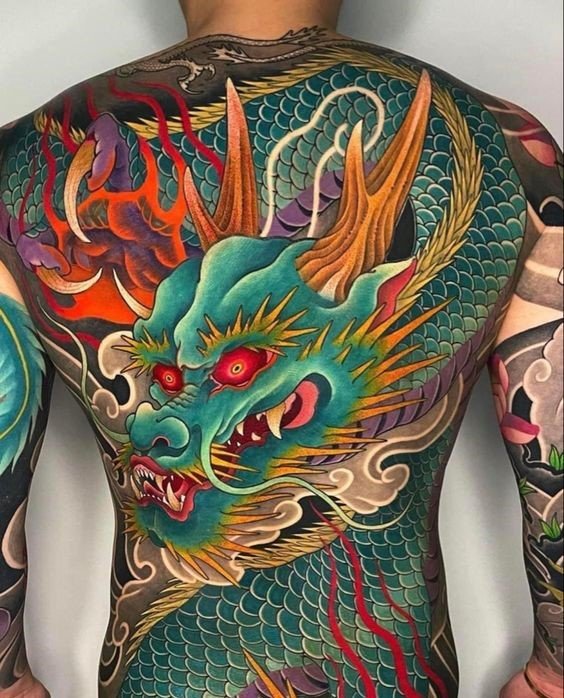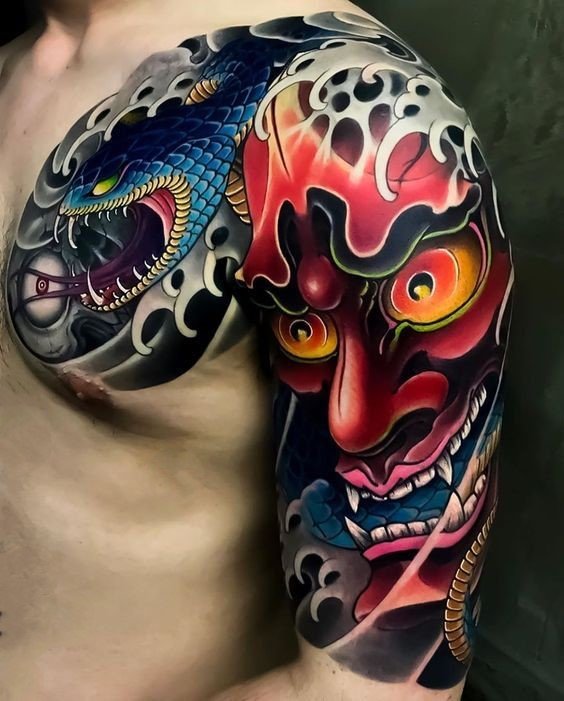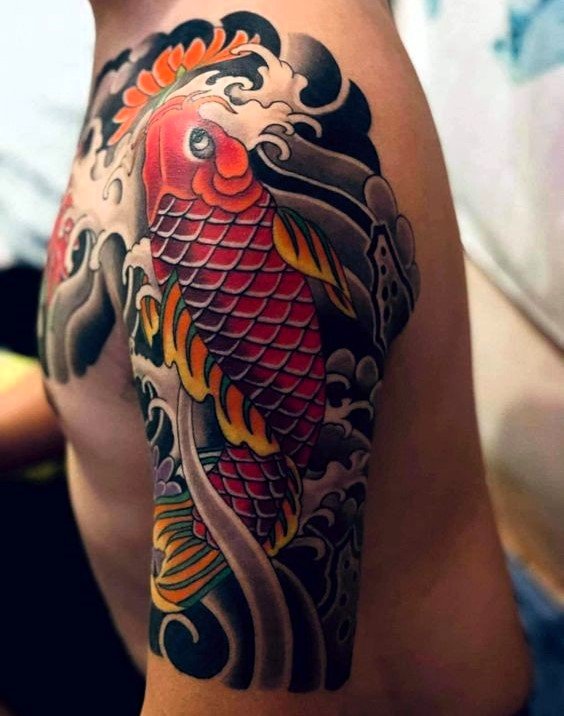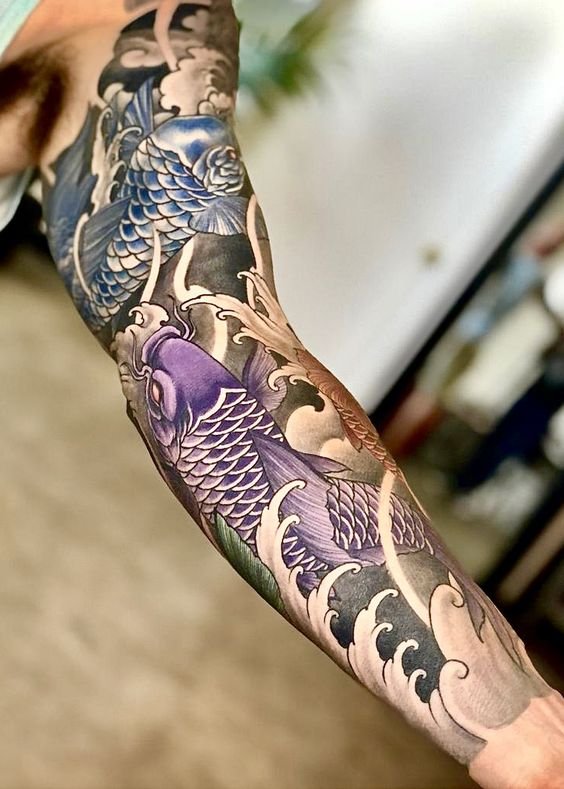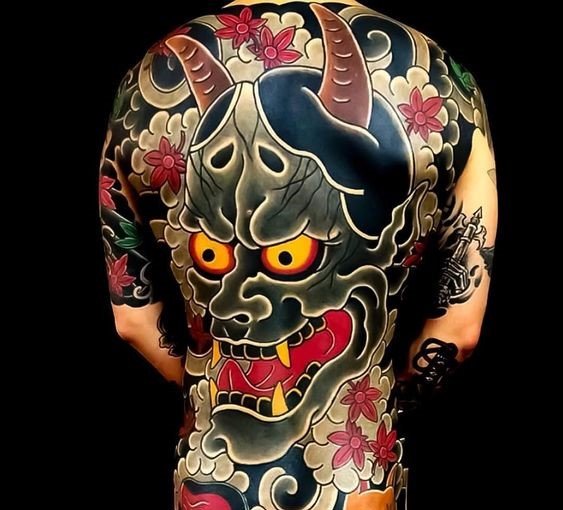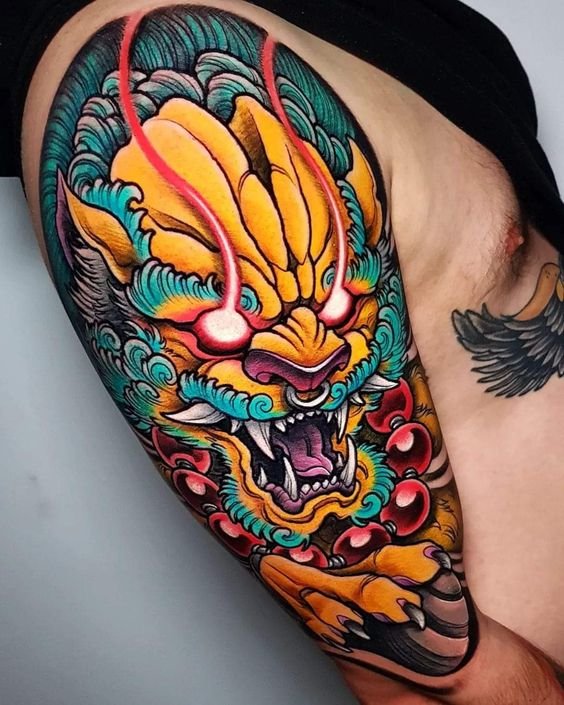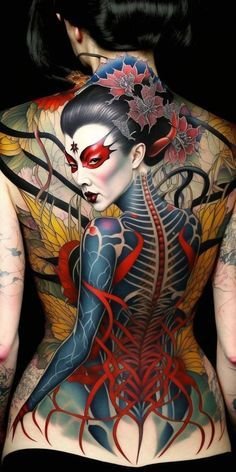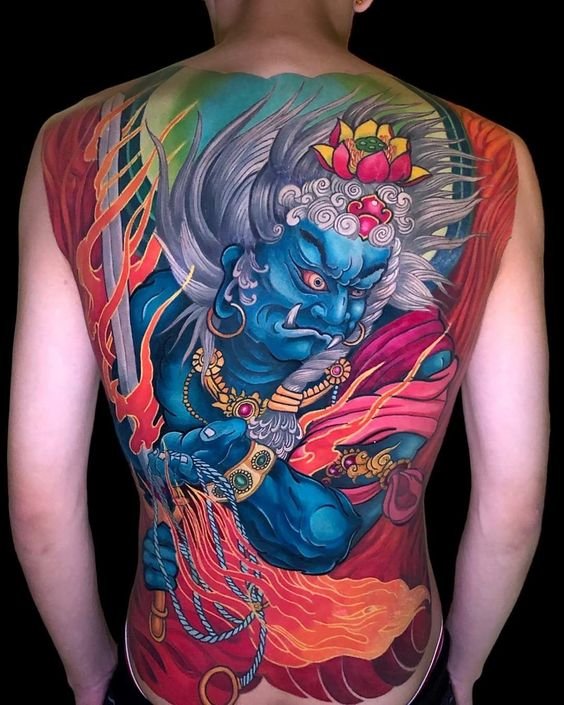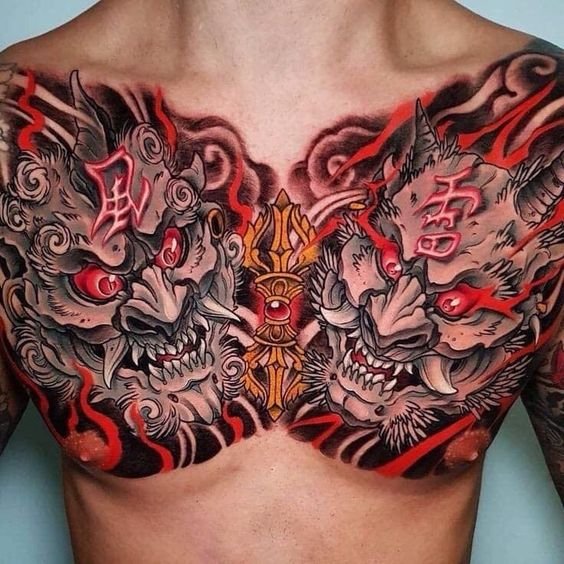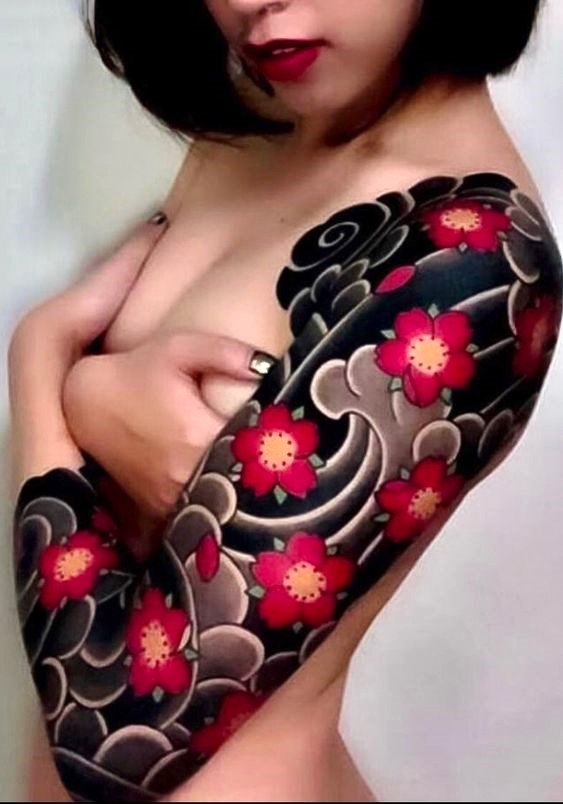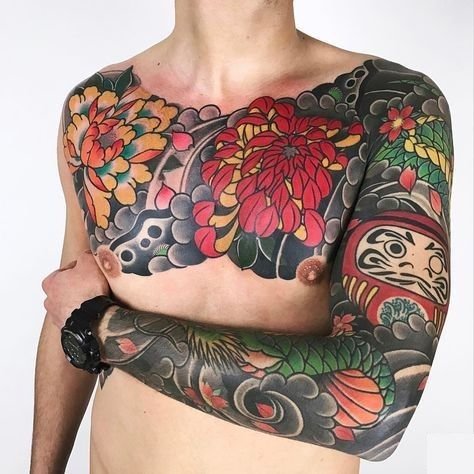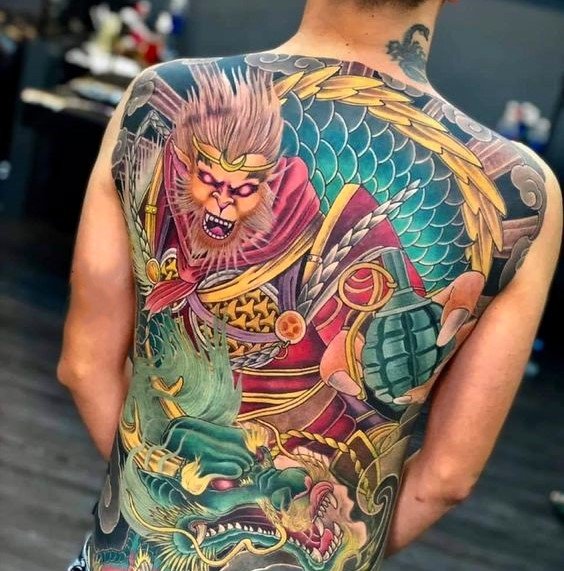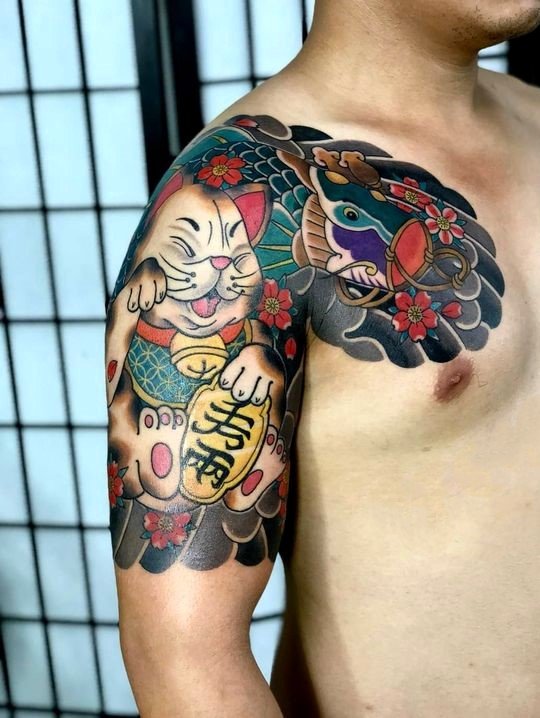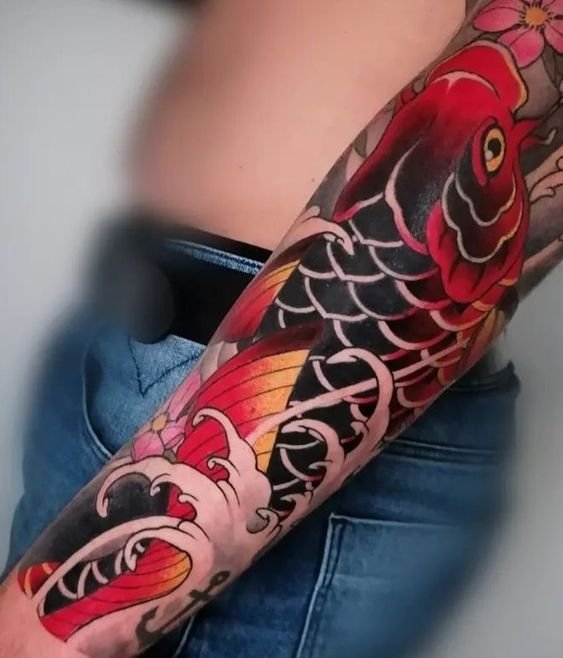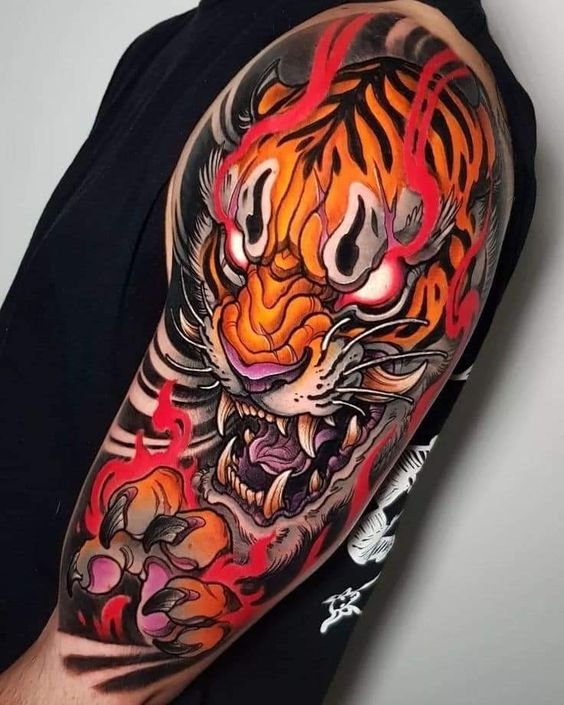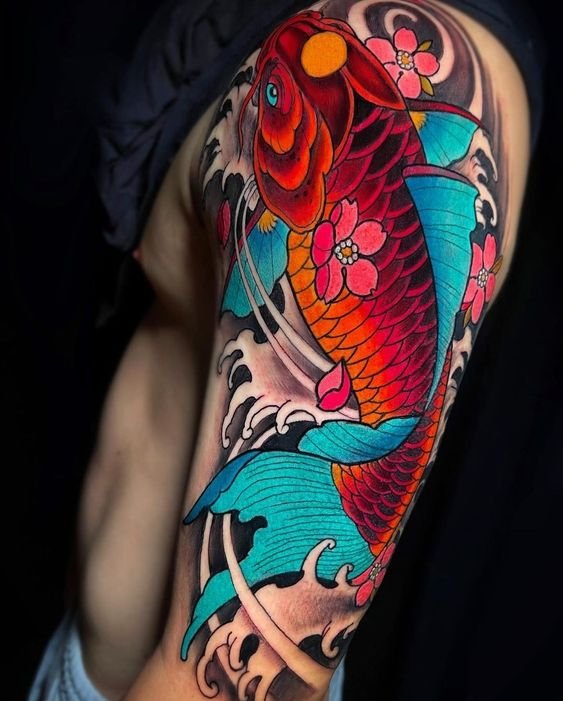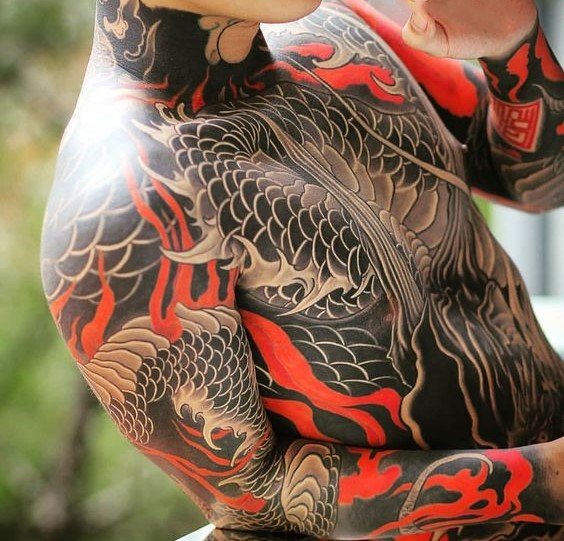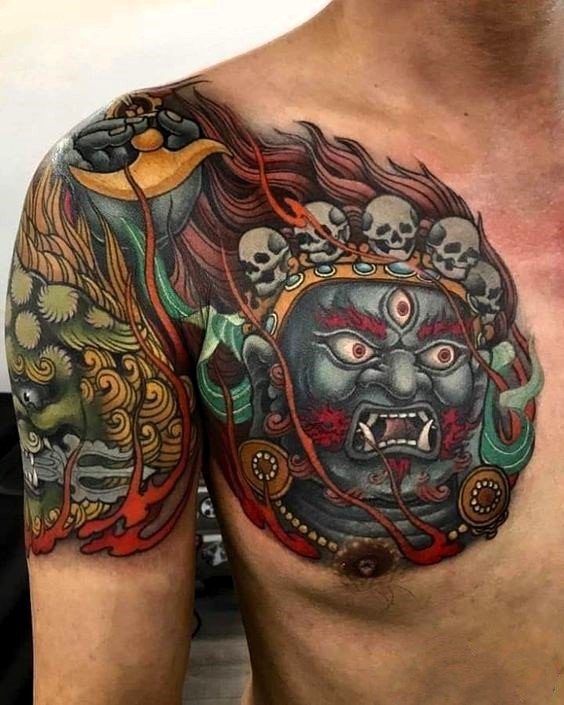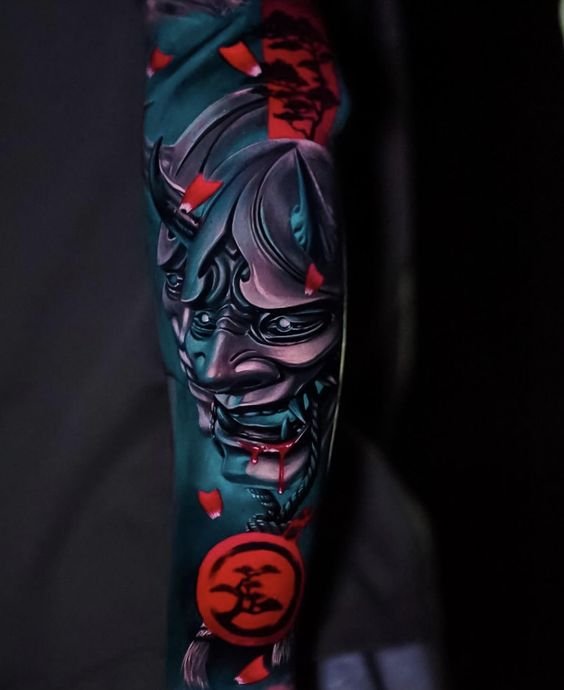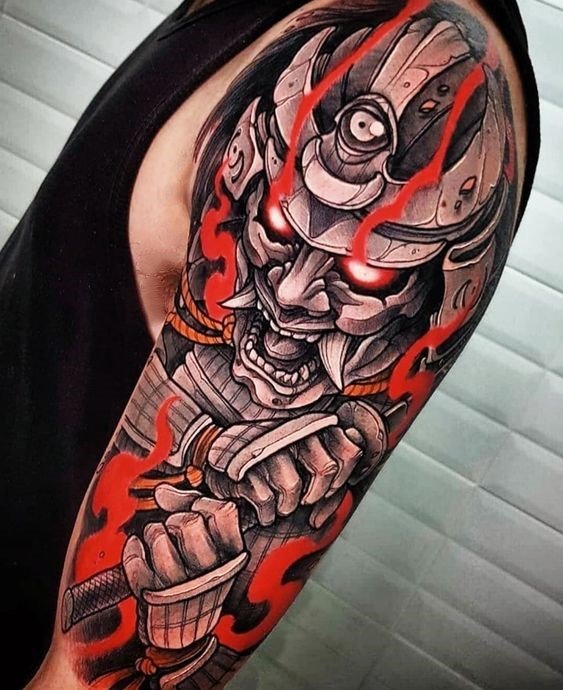From Status
Symbols to Art:
The Evolution of Japanese
Tattoos
The origin of Japanese tattoos dates back to ancient history.
The first mentions of irezumi were found in Chinese historical chronicles about Japan in the third century. However, at that time, tattoos were often associated with punishments and stigmatization, rather than art. Criminals were marked with tattoos to denote their social status and committed crimes. A major shift occurred during the Edo period (1603-1868), when tattoos began to gain popularity as an art form among the working class. Fishermen, firefighters, merchants, and even the yakuza adorned their bodies with complex images of dragons, koi carps, waves, flowers, and scenes from folk tales. These tattoos served not only as decoration but also symbolized faith, protection, luck, and bravery. Tattoos became a form of self-expression and a way to demonstrate personal achievements and character traits.
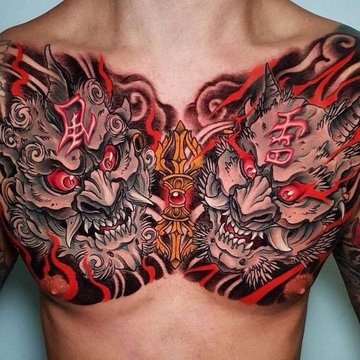
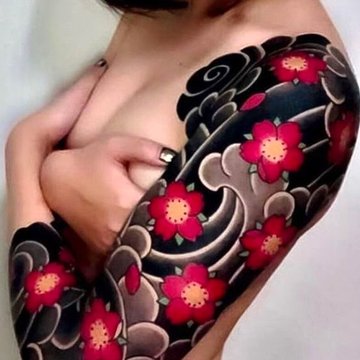
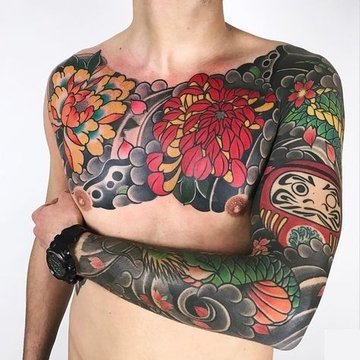
With the onset of the Meiji period (1868-1912), the Japanese government, aiming to modernize the country and improve relations with the West, banned tattoos, considering them a primitive custom.
However, this only intensified the interest in irezumi in the underground culture, especially among the yakuza, where tattoos became a symbol of belonging and loyalty. By the end of the 20th century, the taboo on tattoos in Japan began to weaken, and interest in this art form grew both domestically and abroad. Today, Japanese tattoos are valued for their beauty, complexity, and deep symbolic meaning worldwide. They serve as a bridge between ancient tradition and modern art, continuing to inspire both tattoo masters and their clients to create unique works of art on the skin.
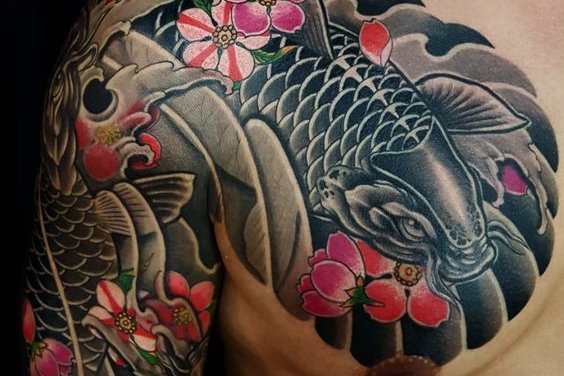
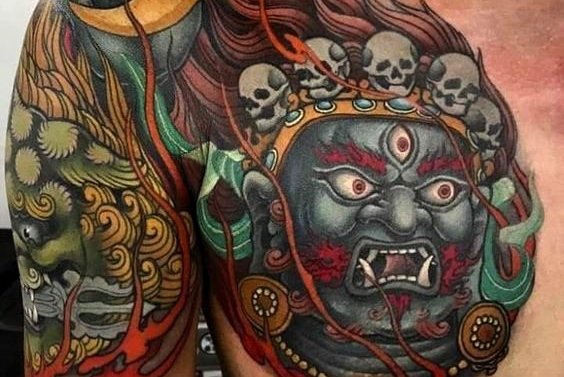
Unveiling the Meanings of Popular Variants:
- The koi carp symbolizes luck, prosperity, and perseverance. There is a legend that a koi carp, having managed to overcome the river's current and ascend the waterfall, transforms into a dragon, emphasizing its strength and determination.
- The dragon in Japanese culture is often associated with power, wisdom, and protection. Dragons are considered mighty and noble creatures capable of bringing fortune and well-being.
- The phoenix, known in Japanese culture as Fenghuang or Ho-oo, represents rebirth, longevity, and an indomitable will to live. It is a symbol of high spiritual achievements and eternal rejuvenation.
- Flowers play an important role in Japanese tattoo culture, with each flower carrying its unique meaning. For example, the sakura (cherry blossom) symbolizes beauty and the transience of life, highlighting the value of every moment. The chrysanthemum is associated with longevity, happiness, and the autumn period. These symbols can be used in tattoos both individually and in combination with each other, creating unique stories and symbolic meanings on the wearer's skin.
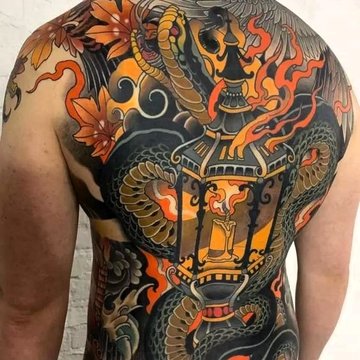
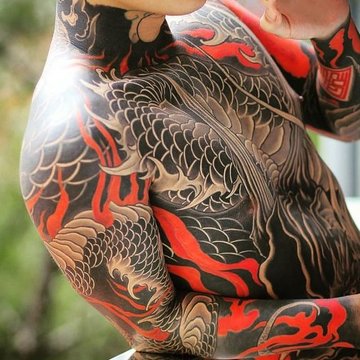
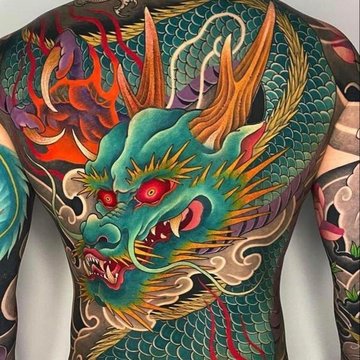
Tattoos for Women and Men
Japanese tattoos do not differentiate between genders, however, there are preferences in the choice of motifs and the placement of tattoos on the body.
- For women: more delicate and graceful motifs such as ume and sakura flowers, birds, and water elements are preferred. They are usually placed on the shoulders, back, thighs, preferring more concealed areas of the body.
- For men: more large-scale and bold images, such as dragons, tigers, warriors are chosen. Tattoos often cover the entire back, arms (in the form of sleeves), or chest, emphasizing masculinity and strength.
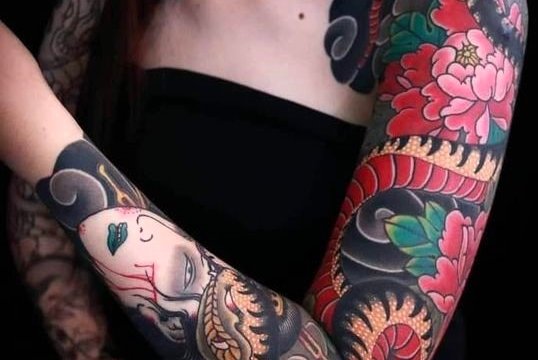
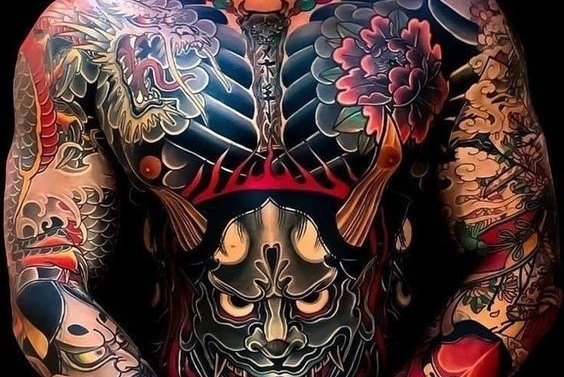
Japanese tattoos are not just body decoration, but a complete art form with deep symbolic meaning, requiring from the master not only high craftsmanship but also an understanding of Japanese cultural traditions.
Before getting such a tattoo, it is important to carefully think through and choose the right motif for yourself, as it will carry a specific meaning throughout life.
VEAN TATTOO studio offers a unique experience of immersing in the world of irezumi, combining classic Japanese techniques with an individual approach to each client. Our masters not only recreate traditional images of dragons, koi carps, and samurais but also adapt classic motifs to the personal stories and desires of clients, creating tattoos that are not only works of art but also deeply personal symbols for each wearer.


 Create a sketch in the VEAN TATTOO AI generator
Create a sketch in the VEAN TATTOO AI generator
